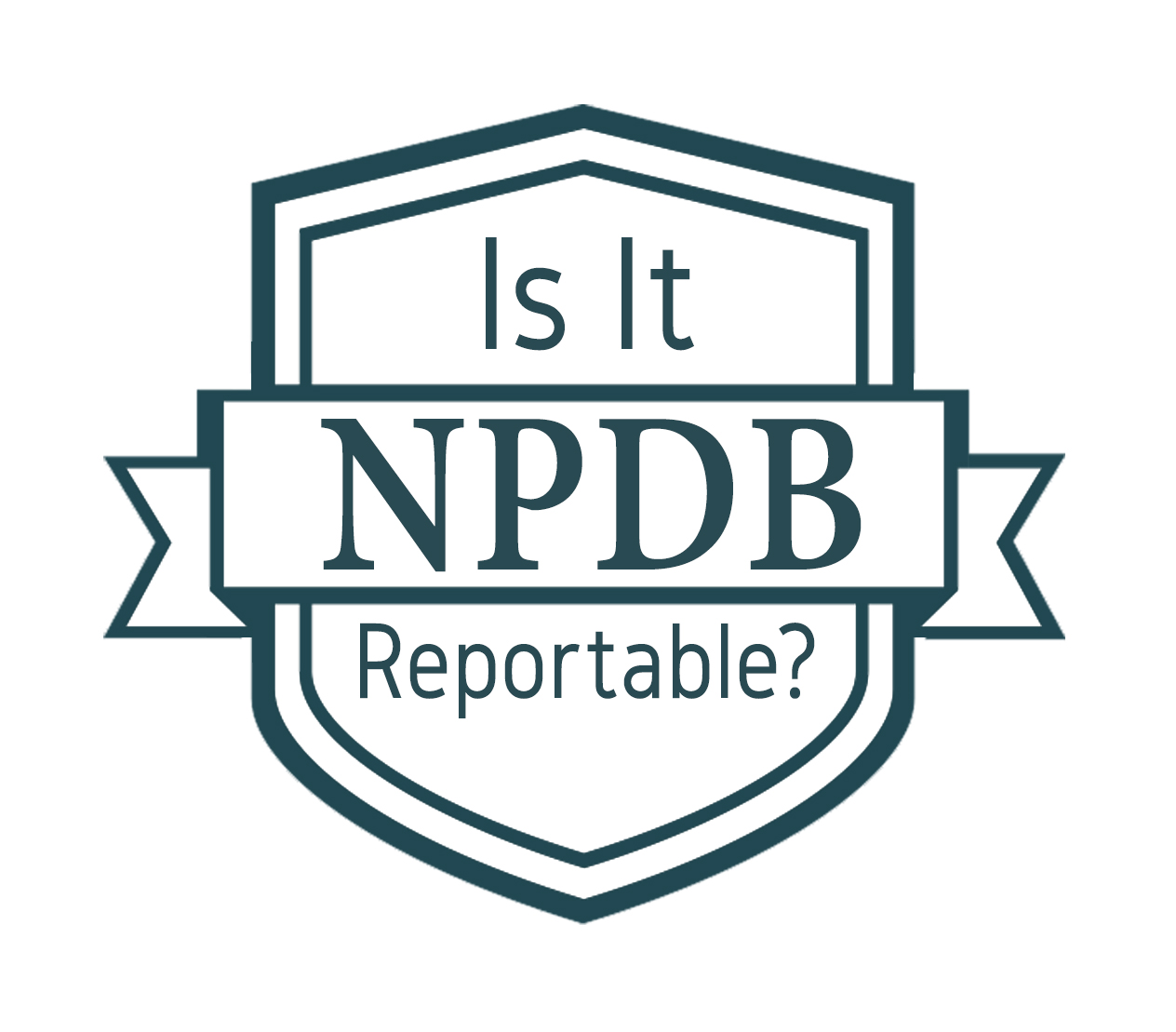NPDB Insights
Is It Reportable?

A hospital suspended a physician’s clinical privileges for 45 days for failing to complete medical records. Should this action be reported to the NPDB?
Such a suspension must be reported to the NPDB if the suspension is a result of a professional review action, and the hospital determines that the failure to complete medical records is related to the physician’s professional competence or conduct, and adversely affects (or could adversely affect) a patient’s health or welfare. If the suspension of the practitioner’s clinical privileges is the result of an automatic or administrative action, and not the result of a professional review action, the suspension should not be reported to the NPDB.
New Infographic Contrasts Entities vs. Agents
The NPDB has released a new infographic that defines an entity, an authorized agent, and the relationship between them.
Entities are health care organizations that are authorized to query and report to the NPDB, as well as to authorize agent organizations to query and/or report on their behalf. Authorized agent organizations must be given permission by an entity to query and/or report on its behalf. Both the entity and their authorized agent must be registered with the NPDB. In addition, entities are ultimately responsible for meeting NPDB reporting and querying requirements, regardless of having designated an authorized agent.
As we develop more infographics about common topics of interest, we will continue to update you in future issues of NPDB Insights.
When Can Query Responses Be Shared Within a Health System?

The information contained in NPDB reports is considered confidential, and may not be disclosed except as specified in NPDB regulations. The confidentiality provisions of Title IV, Section 1921, and Section 1128E allow an eligible entity receiving information from the NPDB to disclose the information to others who are part of the investigation or peer review process, as long as the information is used for the purpose for which it was provided.
For example, NPDB query responses may be shared between organizations within a health system, provided the health system:
- Provides for centralized credentialing;
- Has a centralized peer review process;
- Has one decisionmaking body; and
- Has one unified medical staff.
However, query responses may not be shared within a health system if the health care entities comprising it:
- Make their own credentialing decisions;
- Grant privileges only at their own facilities; or
- Have an independent medical staff.
Sharing query responses and any accompanying reports with individuals or organizations outside of the querying organization's review process is prohibited. The strong security rules and limited access exist to not only protect the privacy of the individuals whose information resides within the NPDB, but also to help ensure the integrity of the information reported to the NPDB.
The latest updates and resources are available at https://www.npdb.hrsa.gov.
Previous editions of NPDB Insights are available in our archive.
 An official website of the United States government.
An official website of the United States government.


